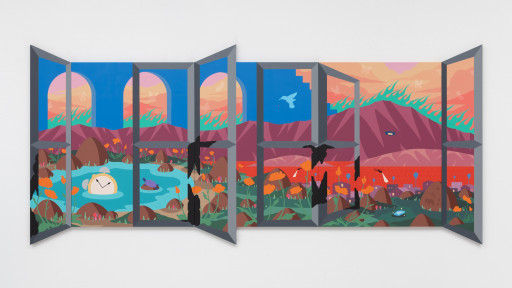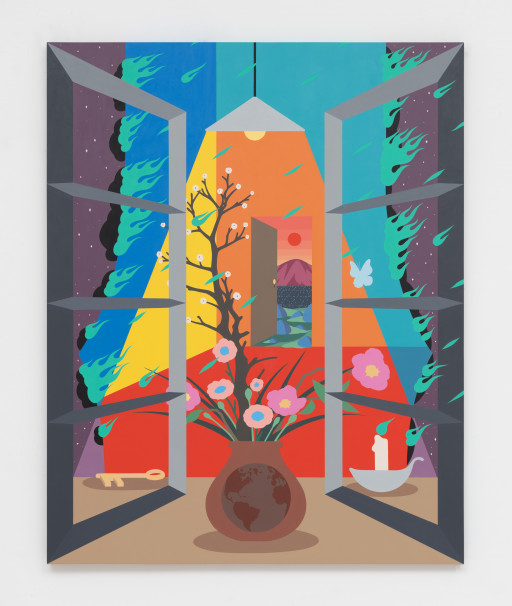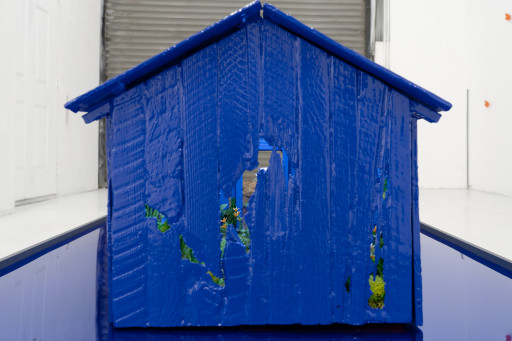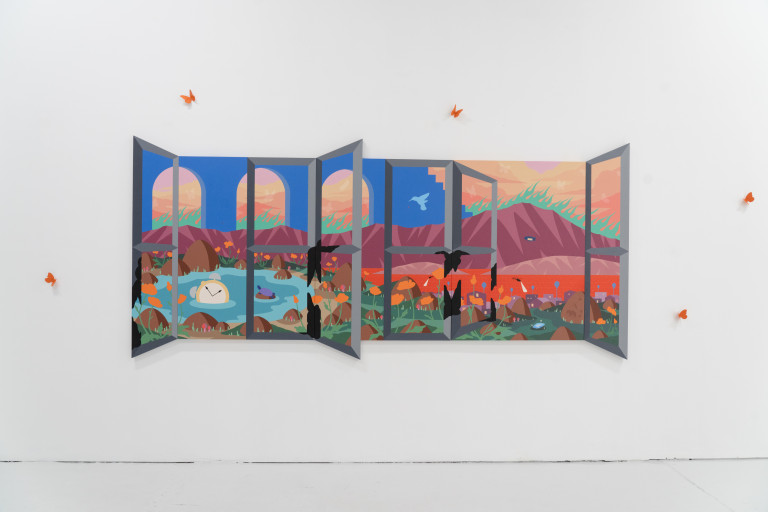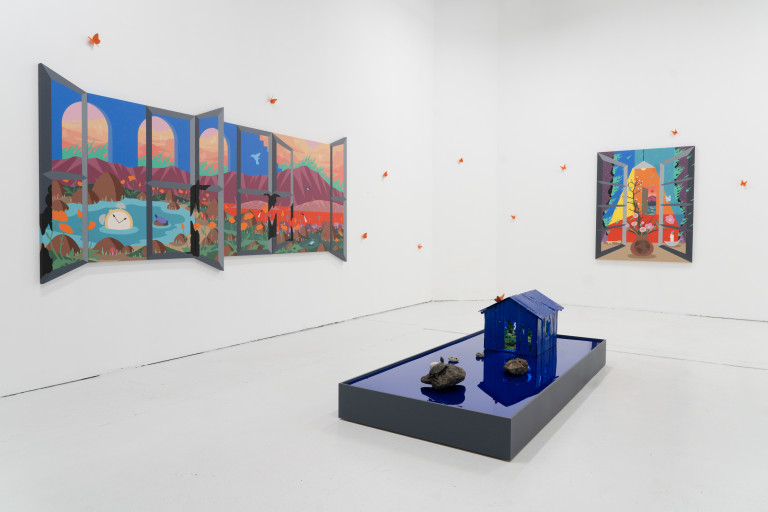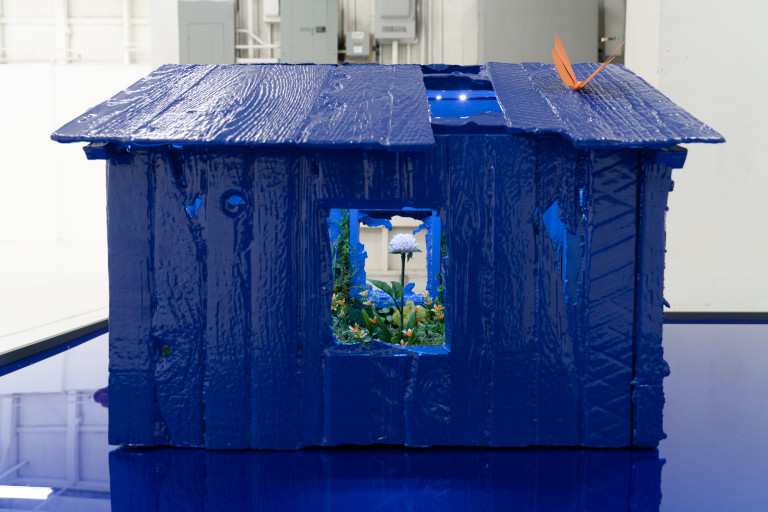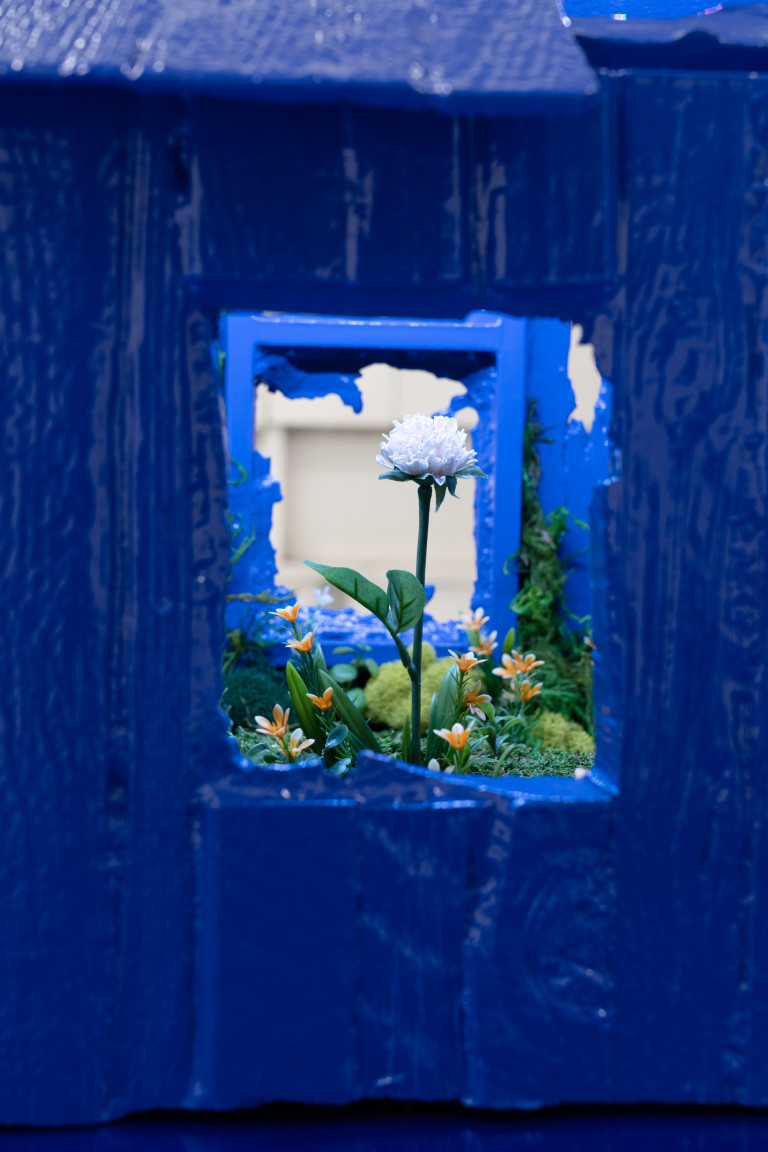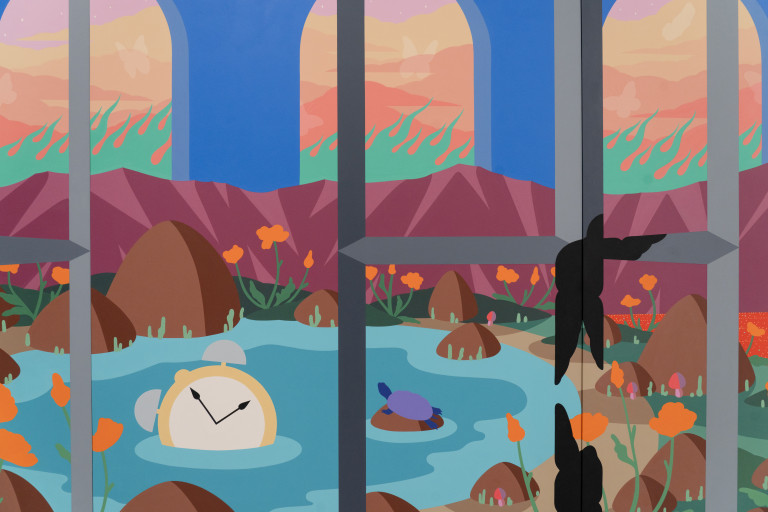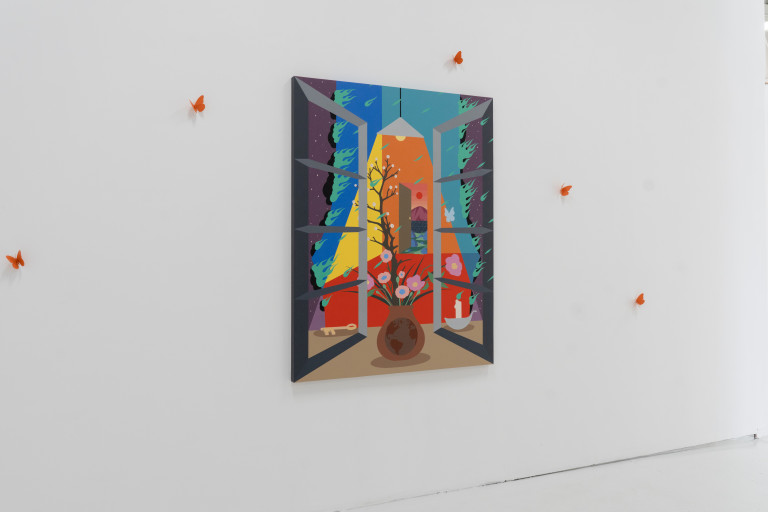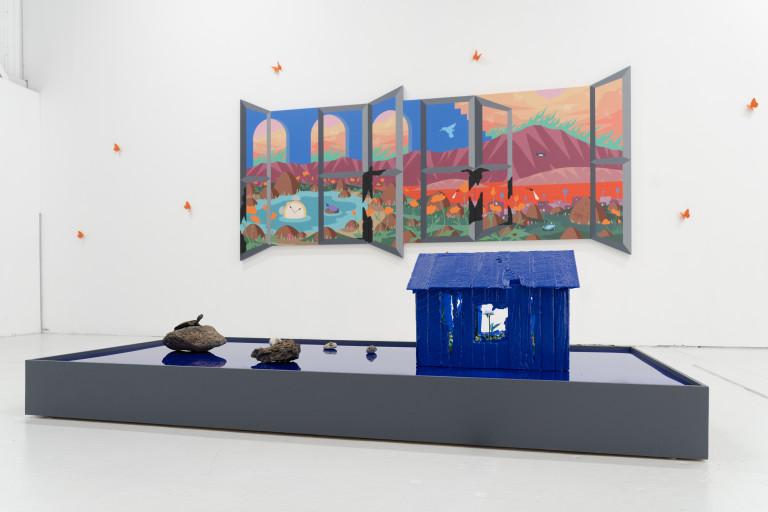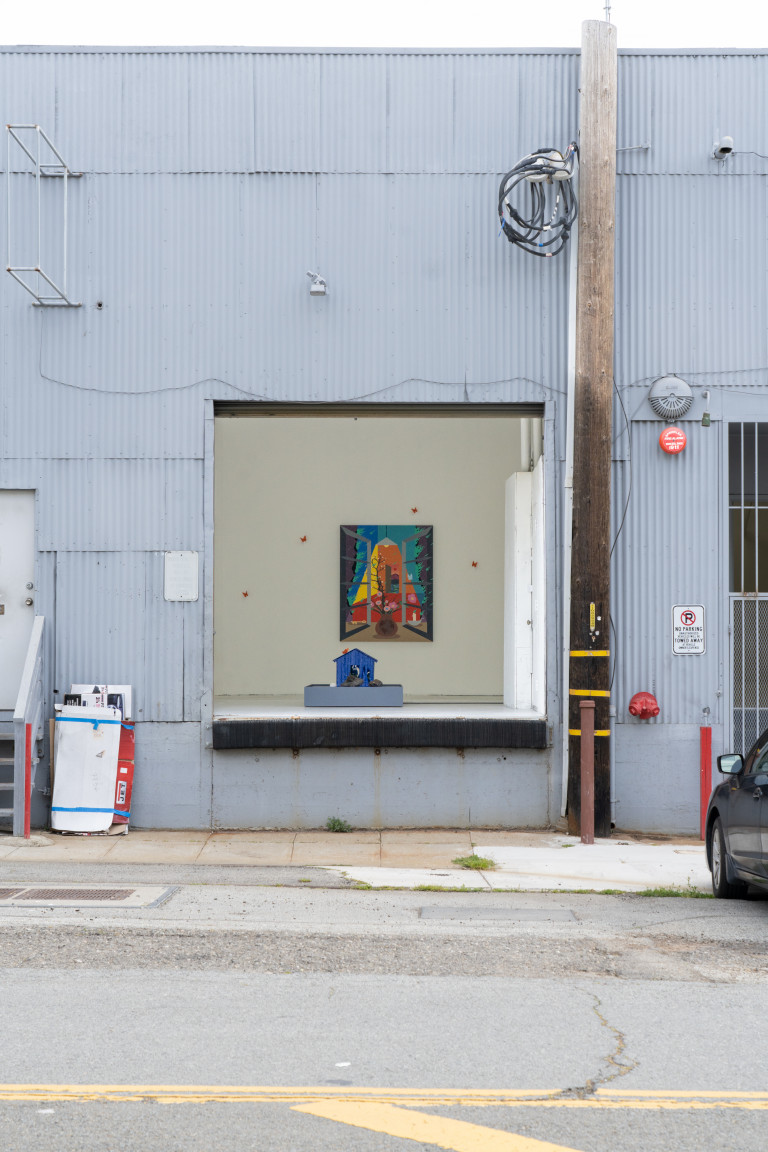I am a future ghost. I am getting ready for my haunting
—Eve Tuck
Micki Meng is pleased to present The Weight of Your Shadow by Los Angeles-based artist Greg Ito. The exhibition opens to the public on May 4th at Micki Meng Gallery in San Francisco’s Bayview neighborhood at 1720 Armstrong Ave #1A, San Francisco, CA.
Greg Ito’s The Weight of Your Shadow manifests radical absence through a multi-medium pairing of painting and sculpture featuring family heirlooms, translucent materials, and naturalistic motifs—all to question what it means to be a steward for objects that transmit a legacy.
We are a product of that which haunts us: dead legacies, lost utopias, generational trauma, and the unrealized dreams of our forefathers. Though irrevocably gone, their absence still hovers—How do we make space for the non-present? It’s the central focal point of Jacques Derrida’s Hauntology and the theoretical bedrock of the work.
The Weight of Your Shadow is a perpetually unfurling Russian doll, where each vacancy makes room for the next. According to Taoist philosophy, the use of a bowl lies not in its form but in its void. There is utility in absence. Ito’s work honors absolute non-presence, while imagining different ways of preserving a family’s legacy. An heirloom is an item that transcends the mundanity of its material; something we imbue with soulfulness. When, and how, does this imbuement die, and at what cost?
A tension is drawn between the weight of these questions and a profound sense of hope that brims just beneath the surface: Flames burn on a hillside. Burnt window frames are covered in foliage. Thick moss grows along the charred carcasses of a home, visually reminiscent of the decaying and neglected haunted house at the end of the street, yet powder blue and illuminated from the inside. The bronze cast of a turtle rehabilitated from the trash of Greg’s ninety-nine year old grandmother forms the central artery to all the varying motifs. The work functions simultaneously as a mourning ritual and a family reunion celebrating the resilience of his ancestors despite hegemonic oppression and incomprehensible sacrifices.
The Weight of Your Shadow suggests that a utopia is not a rejection of the past, nor a glorious, distant future unburdened from the skeletons of lost histories. A utopia carves space for that which haunts us. The ghost is not shunned, but acknowledged, nurtured, present.
